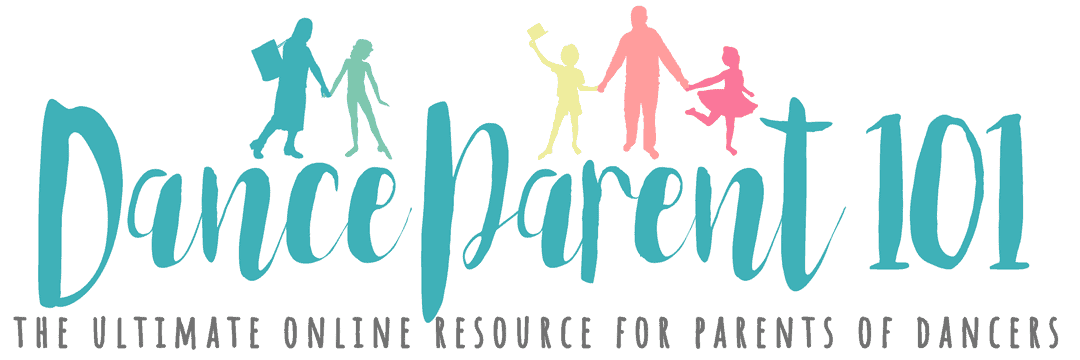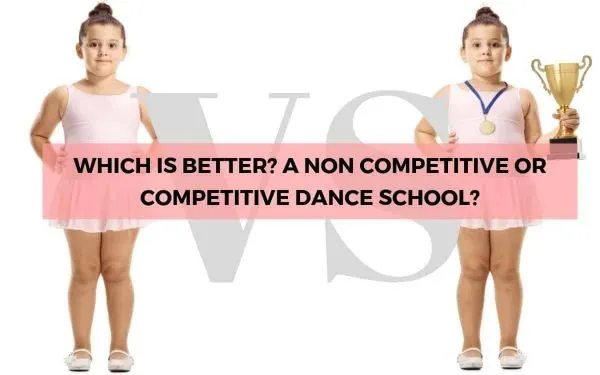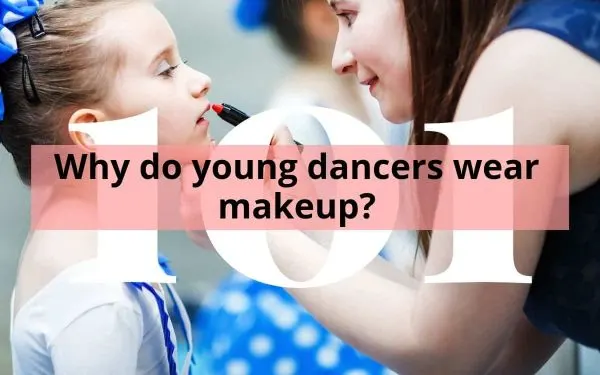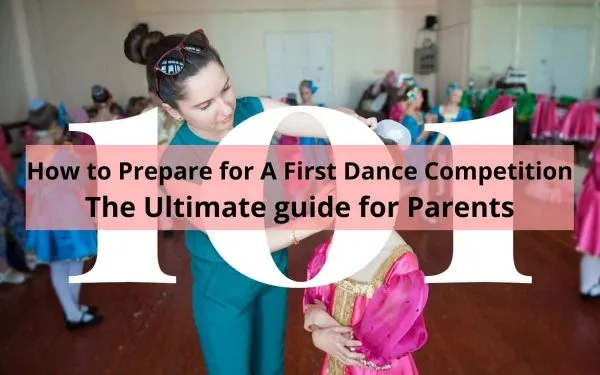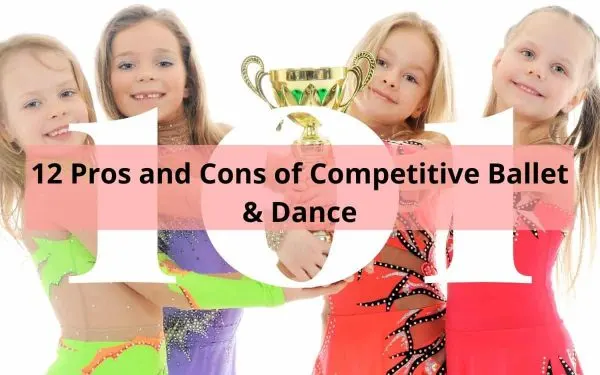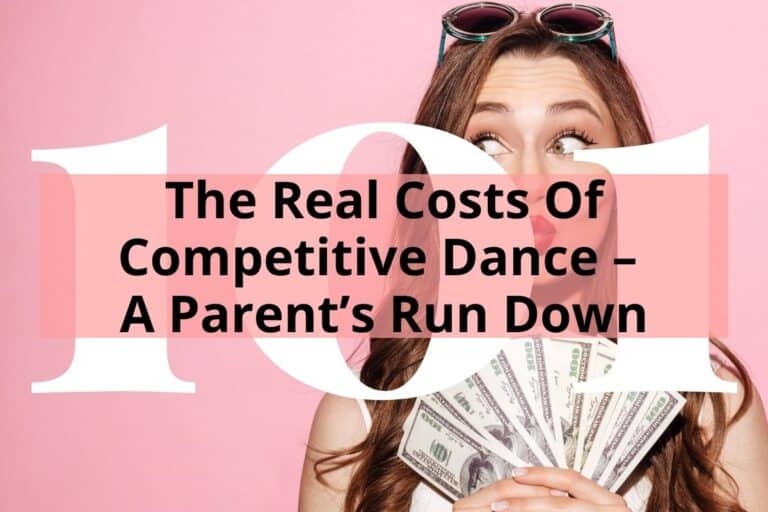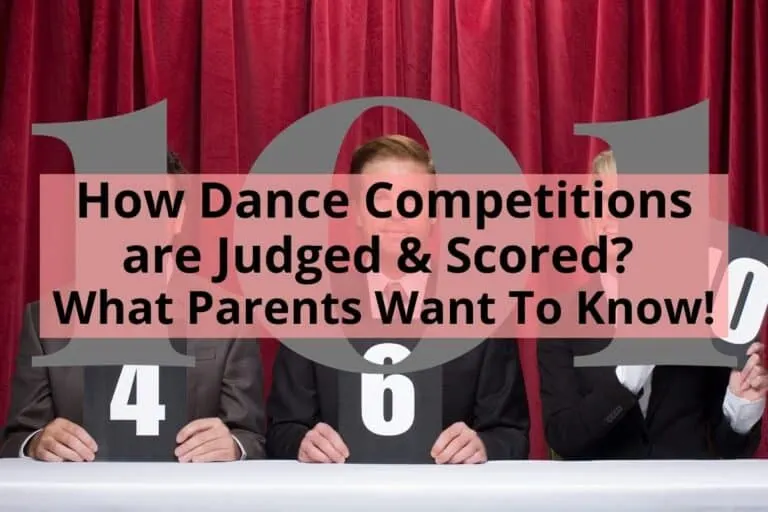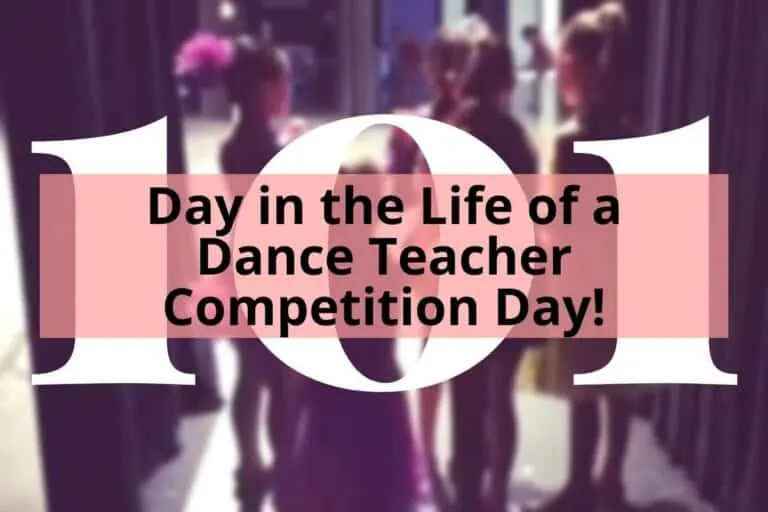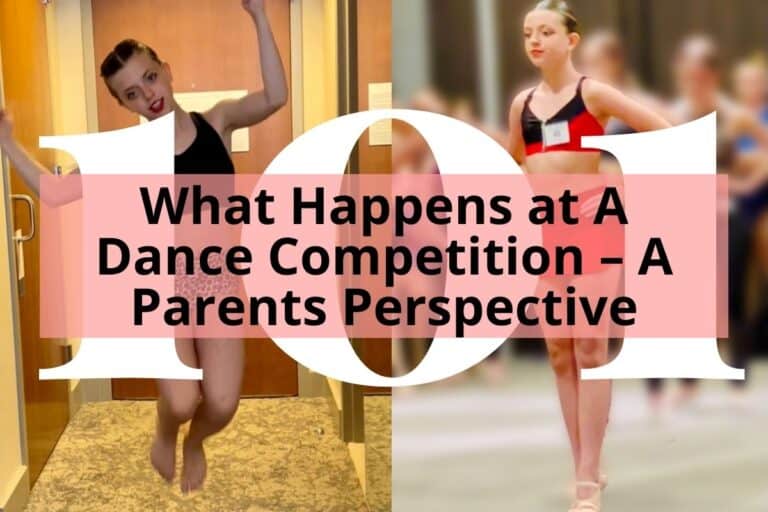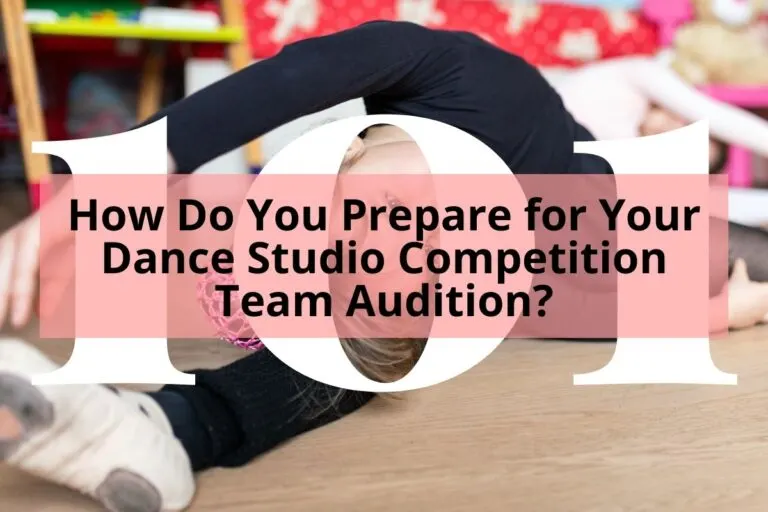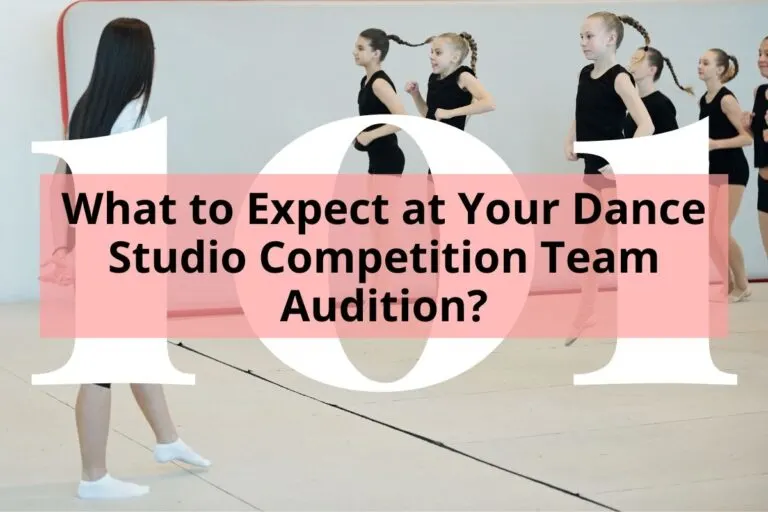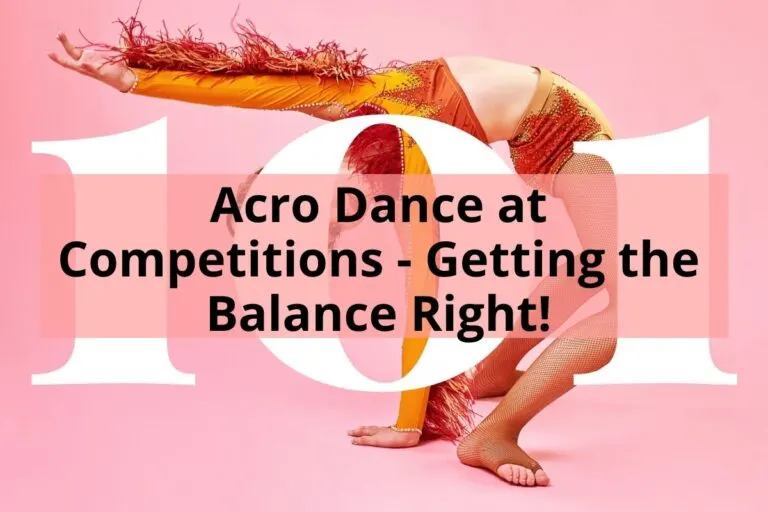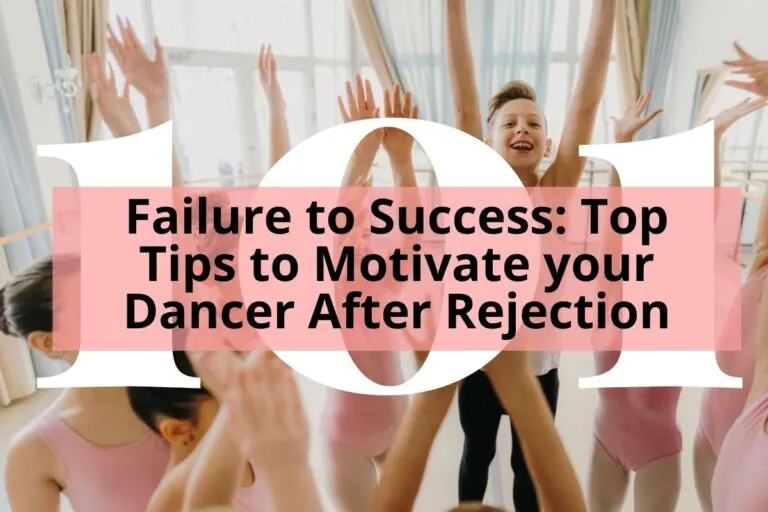Competitive dance can be a fun and exciting world, but by nature, it is a competition and therefore a certain amount of readiness is required to enter. In particular, many people consider age to be a good indicator of whether a dancer is ready to enter and many others believe that there is a certain age at which you are required to stop competing altogether.
There is no best age to begin competitive dance. Entry into most dance competitions is by age with sections starting from age 4 and under all the way up to open sections for ages 20 plus. Your dance teacher is the best guide to tell you whether you or your dancer is ready for competitive dance.

So if there is no best age to start competitive dance, how do you know if you are ready to enter them?
Not a problem, we cover most of your burning questions in this article, and have plenty of other resources about competitive dance on this website to help you work out if you or your dancer is ready to enter the world of competitions!
At what age can children start competitive dance?
The youngest many dance teachers will allow their students to be to start competitive dance is three years old.
Many dance and ballet teachers prefer their students to be of school starting age which is at least five or six years old or even older.
However, entering a competition is always dependent on the rules and regulations of the competition so you will need to check those before entering.
For more information about young children in competitive dance check out our article The pros & cons to starting competitive dance at an early age!
What age is too old to start competitive dance?
You are never too old to enter a dance competition – it just depends on the rules and sections available to enter at a dance competition!
For a comprehensive list of dance competitions check out our article Ultimate USA Dance Competition List by State with Links
There are definitely dance competitions held for children, teens, and adults of all ages.
For teens and adults – think Red Bull hip-hopping and break dancing competitions, ballroom dancing, College Cheer and Dance Team competitions – so just know you are never too old to enter into competitive dance!
Traditional dance competitions in jazz, lyrical, ballet or tap that dance studios enter are mainly aimed at children and teens (like seen on the tv show Dance Moms for example) although they also offer open sections for teams with adult aged dancers.
Also, note that some competitions aimed at kid or teen competitors also have a section for parents to compete in – it’s not always just about the kids!
How long should I be dancing for before entering a dance competition?
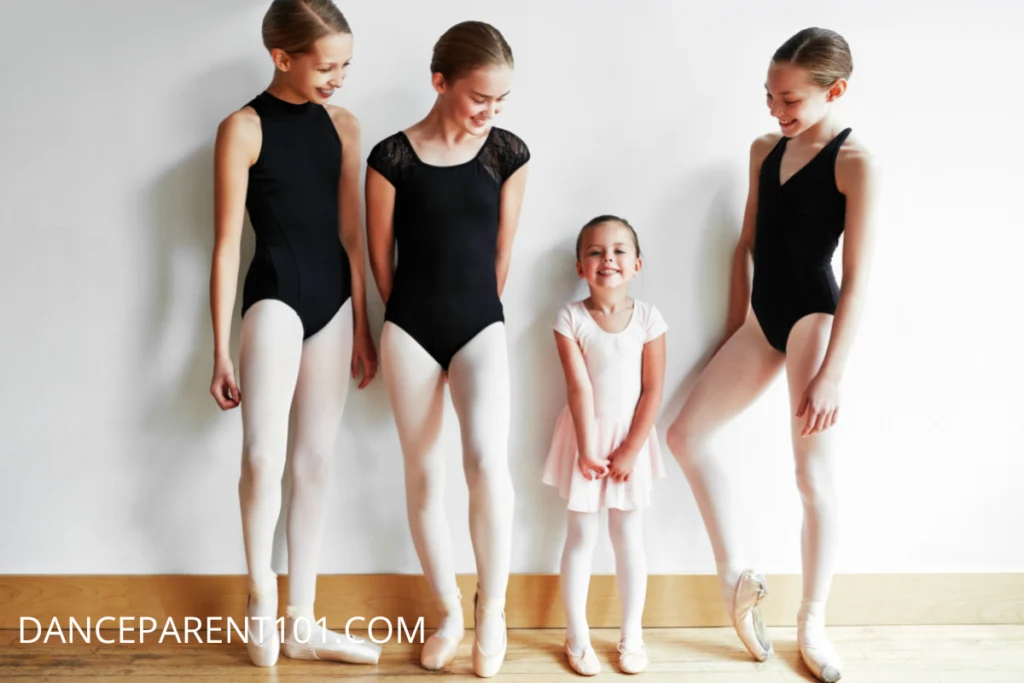
In most cases a dancer will have been taking technique dance classes for at least a year if not more before they are are ready to enter dance competitions.
This allows them time to learn some basics, develop some discipline and perform in a recital or concert which will give them the experience of learning choreography and performing on stage.
However, everyone is different.
Some dancers may not be ready for several years for various reasons which we cover below, whereas others who pick up dance easily or who are competing in a novice or lower age level (due to age averaging in a group dance) may be ready earlier.
It can also depend on the style of dance you are learning and if you have any experience in an activity that is similar to dance for example gymnastics, martial arts or cheerleading.
Some signs that will show you your child is ready for competitive dance:
- Your teacher asks you if you are interested in entering your child
- Your dancer asks to do them
- Your dancer has the capability to remember and perform choreography for 2-3minutes
- Your child understands what a competition is – that there are winners and losers and have the emotional capacity to accept this.
- They love performing on stage
- You are happy for your dancer to wear stage make up and they allow you to apply it.
- They take care of their costumes and props (don’t eat in them when you ask etc..)
- Your dancer is excited and motivated to practice – you only need to give them a small amount of encouragement.
Signs that show you your child is not ready for dance competitions:
- They forget choreography or the dance consistently.
- They are unable to stay in the correct position or line their teacher has given them to dance in.
- They like the idea of competing, but are scared or wary of performing in front of others.
- It is a real struggle to get them to practice or stretch at home.
- Your dancer messes around in class or doesn’t listen to corrections or feedback or does not put in the same amount of effort as the others.
Some reasons why your teacher may not feel your dancer is ready for competitions or does not invite them onto a team.
- Your dancers is technically behind meaning their skill level is not as high as the children chosen for the competitive team at their studio.
- Your studio may also have certain technical requirements such as students may need to be able to do a pirouette, the splits or an acrobatic trick.
- Your dancer regularly misses classes – being on a competitive team takes commitment.
- Your dancer is not enrolled in or does not take the technical classes required to be on the competition team.
- Your teacher’s schedule is full – they honestly do not have time to take on another student for solos.
- The spots for the routine could be limited based on costumes already purchased or owned and their sizes.
The pros and cons of starting children in competitions from an early age?

| Pros | Cons |
|---|---|
| It eases them into the world of competitive dance. | It could be too much too soon! |
| If they decide they don’t like competing or even dance anymore after a year or two, they have plenty of time to move on to other things. | Can limit your child to only dancing and not other activities because of the time commitment. |
| They have a head start on mastering the art of performing as based on the 10000 hour mastery rule. | Burn out or loss of passion for dance at an early age. |
| Performance experience. | The costs!!! |
| Stress, Tantrums & meltdowns | |
| The argument that children do not get enough free play in today’s society. | |
| There is plenty of time to do competitive dance at a later age. |
For more explanation on the points in this table take a read of The pros & cons to starting competitive dance at an early age!
